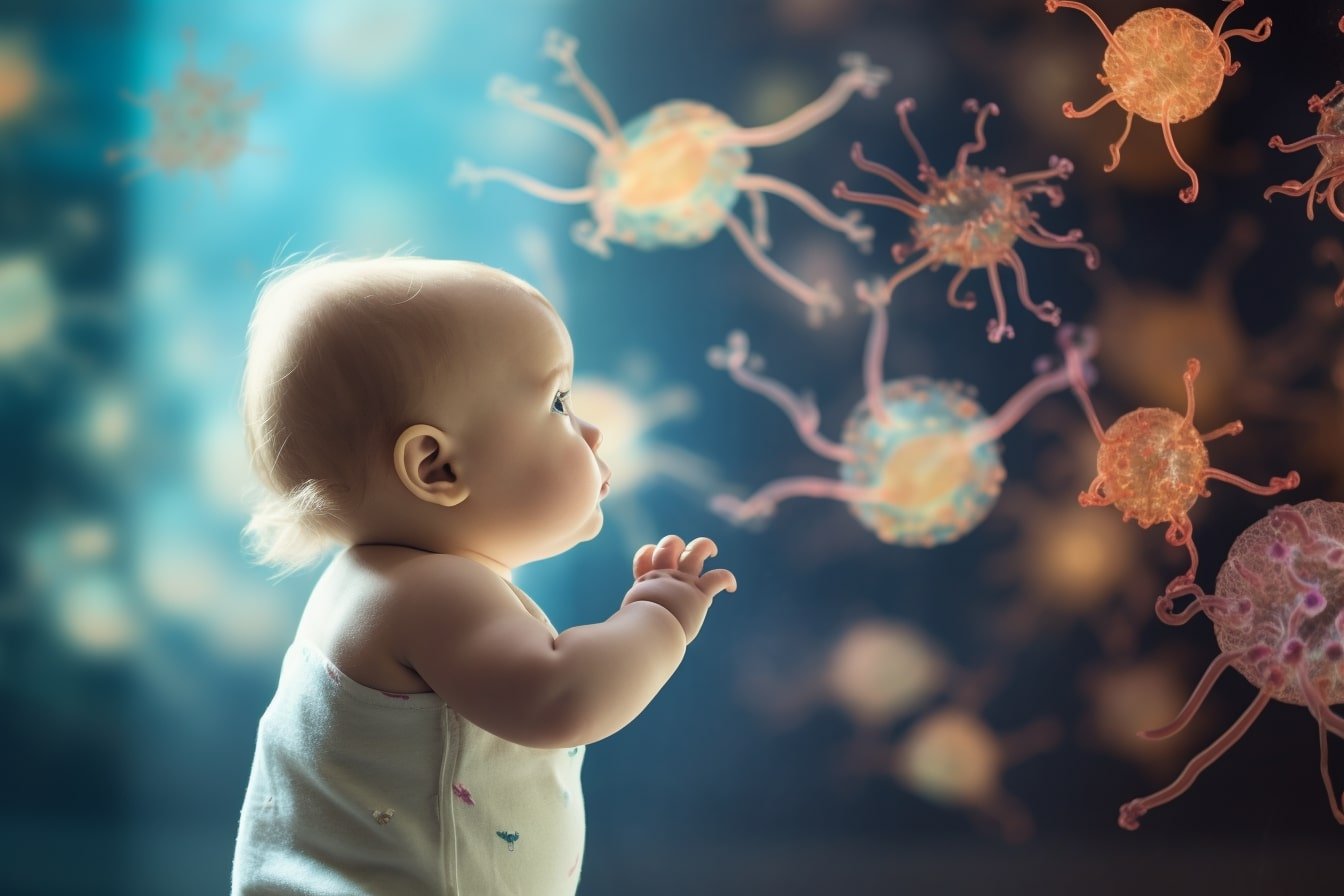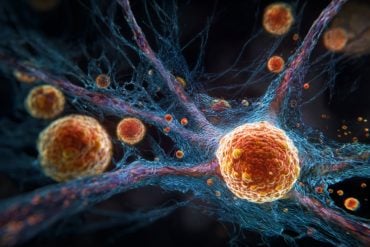Summary: Researchers discovered associations between specific microbes in infants’ guts and early cognitive development performance.
This exploratory study examined 56 infants, revealing that certain microbiome compositions corresponded with success in cognitive tests like “point and gaze”. While these findings hint at the microbiome’s potential influence on cognitive development, further research is essential.
Key Facts:
- Infants with certain gut microbes exhibited better performance in a social attention test.
- Specific patterns of brain activity, when listening to a steady beat, were linked to particular microbial levels and metabolic chemical reactions.
- No observable connection was found between the microbiome and infants’ brain blood flow during speech processing.
Source: PLOS
In a small, exploratory study, levels of certain types of microbes in babies’ guts were shown to be associated with performance in tests of early cognitive development.
Sebastian Hunter of the University of British Columbia, Canada, and colleagues present these findings in the open-access journal PLOS ONE on August 9, 2023.
Mounting evidence has highlighted numerous ways in which the community of diverse microbes that naturally reside in the human gut—the microbiome—is connected to human health, including brain health.

Several studies in animals and humans have hinted at connections between the microbiome and early-life brain development, but few have examined how differences in infants’ microbiomes might be associated with differences in their emerging cognitive abilities.
To help deepen understanding of these potential connections, Hunter and colleagues analyzed data from 56 infants aged four to six months. The infants had each completed at least one of three evaluations of various cognitive abilities, and the researchers evaluated their gut microbiomes using fecal samples.
They found that infants who succeeded at a test of social attention known as “point and gaze”—which measures the ability to share focus on an object with another person—tended to have higher amounts of microbes in the Actinobacteria phylum, the genus Bifidobacterium, and the genus Eggerthella, and lower amounts of microbes in the Firmicutes phylum, the Hungatella genus, and the Strepcococcus genus.
Meanwhile, electroencephalogram measurements of infants’ brain activity in response to hearing a steady beat showed that certain patterns of activity linked to better rhythmic processing were associated with higher or lower levels of certain microbe types, as well as with levels of certain metabolic chemical reactions involving microbes that prior studies have linked to brain and spinal cord development.
No links were found between the microbiome and measurements of blood flow in the infants’ brains in response to hearing recordings of both forward and backward human speech.
Overall, these findings are in line with the idea that the microbiome might influence early cognitive development, but more research is needed to confirm and clarify this role.
The authors add: “In our small pilot study, we observed interesting associations between the microbiome and brain function in early infancy. Further replication and research could be fruitful for understanding the role of the microbiome in early cognitive development.”
About this neurodevelopment research news
Author: Hanna Abdallah
Source: PLOS
Contact: Hanna Abdallah – PLOS
Image: The image is credited to Neuroscience News
Original Research: Open access.
“Babies, bugs and brains: How the early microbiome associates with infant brain and behavior development” by Sebastian Hunter et al. PLOS ONE
Abstract
Babies, bugs and brains: How the early microbiome associates with infant brain and behavior development
Growing evidence is demonstrating the connection between the microbiota gut-brain axis and neurodevelopment. Microbiota colonization occurs before the maturation of many neural systems and is linked to brain health. Because of this it has been hypothesized that the early microbiome interactions along the gut-brain axis evolved to promote advanced cognitive functions and behaviors.
Here, we performed a pilot study with a multidisciplinary approach to test if the microbiota composition of infants is associated with measures of early cognitive development, in particular neural rhythm tracking; language (forward speech) versus non-language (backwards speech) discrimination; and social joint attention.
Fecal samples were collected from 56 infants between four and six months of age and sequenced by shotgun metagenomic sequencing. Of these, 44 performed the behavioral Point and Gaze test to measure joint attention.
Infants were tested on either language discrimination using functional near-infrared spectroscopy (fNIRS; 25 infants had usable data) or neural rhythm tracking using electroencephalogram (EEG; 15 had usable data).
Infants who succeeded at the Point and Gaze test tended to have increased Actinobacteria and reduced Firmicutes at the phylum level; and an increase in Bifidobacterium and Eggerthella along with a reduction in Hungatella and Streptococcus at the genus level.
Measurements of neural rhythm tracking associated negatively to the abundance of Bifidobacterium and positively to the abundance of Clostridium and Enterococcus for the bacterial abundances, and associated positively to metabolic pathways that can influence neurodevelopment, including branched chain amino acid biosynthesis and pentose phosphate pathways. No associations were found for the fNIRS language discrimination measurements.
Although the tests were underpowered due to the small pilot sample sizes, potential associations were identified between the microbiome and measurements of early cognitive development that are worth exploring further.






